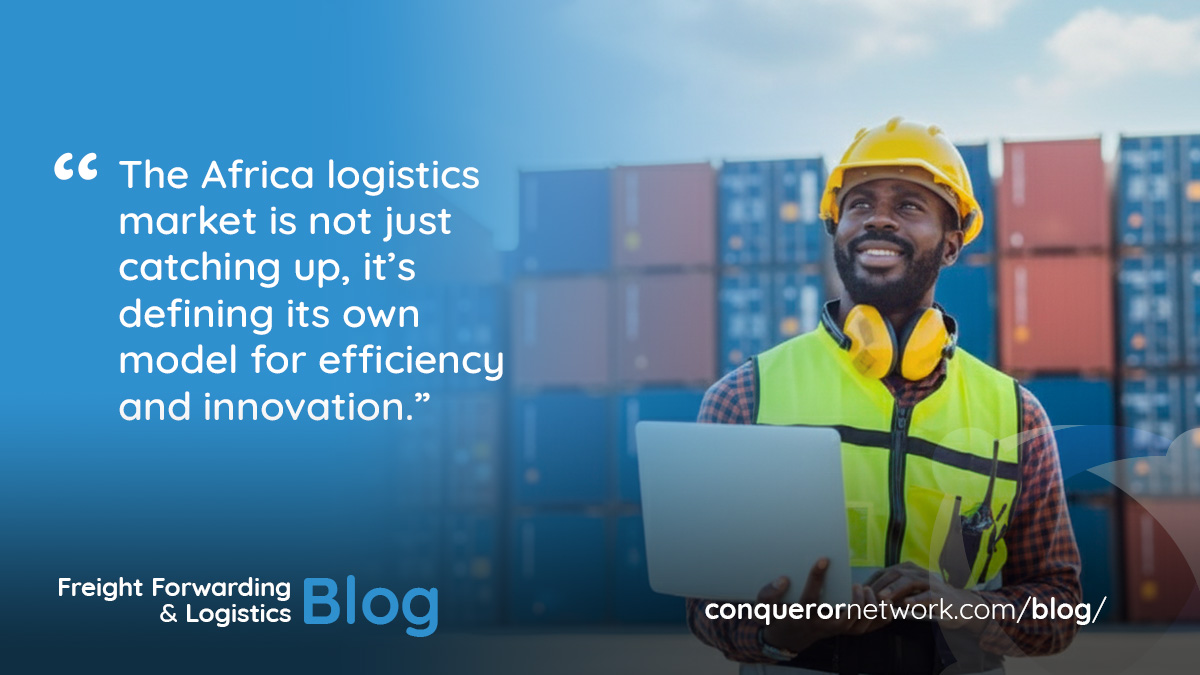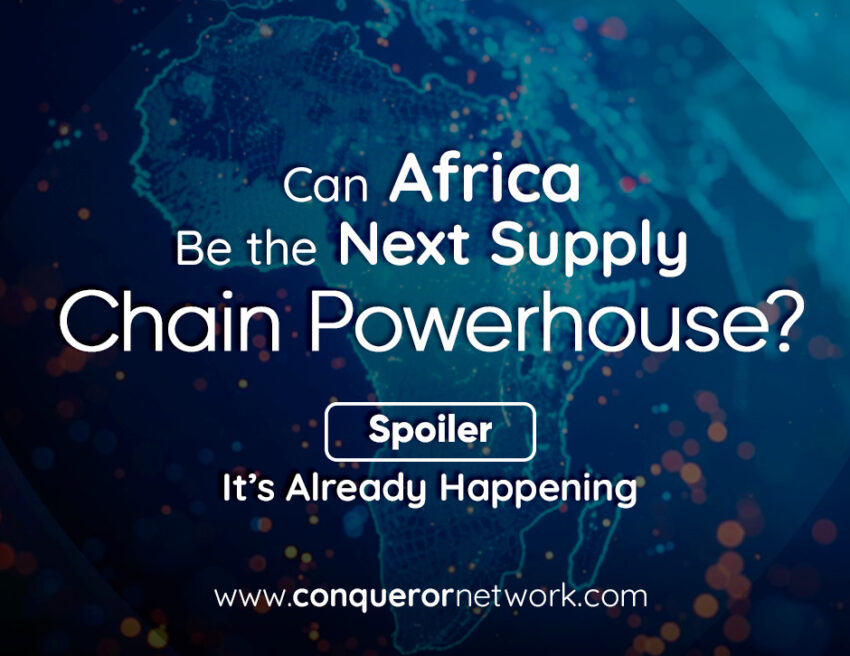Africa Supply Chain Boom: Why the Continent Is the Next Big Player in Global Logistics
For years, when people talked about global manufacturing and trade, all eyes were on Asia. But quietly and steadily, Africa has been setting the stage for something big. The continent’s growth story is now about infrastructure, technology, and a rising Africa supply chain that’s beginning to compete on a global scale.
Let’s take a closer look at how this transformation is unfolding and why logistics professionals should start paying serious attention.
The New Face of the Africa Supply Chain
What’s happening across the continent today feels like a reboot. Governments are investing heavily in ports, railways, and free trade zones, while private investors are fueling industrial parks and logistics corridors. The result? An Africa logistics market that’s expanding faster than many expected.

From Kenya’s Mombasa Port to Nigeria’s Lekki Deep Sea Port and Morocco’s Tangier Med, new trade routes are emerging that connect Africa not only internally but also to Europe, the Middle East, and Asia. These emerging logistics hubs are helping reduce lead times and cut costs, making Africa a much more attractive destination for manufacturers and distributors.
In short, logistics in Africa is moving from survival mode to strategy mode.
Challenges and Opportunities in African Supply Chains
Africa’s logistics transformation comes with its share of challenges. Infrastructure gaps still exist, customs procedures can be inconsistent, and cross-border bureaucracy often slows the flow of goods. But here’s the other side of the story: every one of these challenges also represents a huge opportunity. For instance, digital freight platforms are helping streamline customs clearance and cargo tracking. Investments in technology adoption in African supply chains are creating better visibility across the movement of goods. And as e-commerce grows rapidly from South Africa to Ghana and Kenya, so does the demand for modern warehousing, cold chain logistics, and last-mile delivery solutions. Forward-thinking logistics companies that can navigate this complex landscape are already carving out a competitive advantage.
The Rise of Emerging Logistics Hubs Across the Continent
Africa’s major cities are quickly turning into emerging logistics hubs that anchor regional trade. Nairobi, Johannesburg, Casablanca, and Lagos are leading the charge, but smaller cities like Kigali, Accra, and Addis Ababa are also stepping up with smart infrastructure investments. Take Ethiopia, for example. With one of the fastest-growing cargo airports in Africa, it is positioning itself as a regional aviation and logistics hub. Meanwhile, Morocco’s industrial zones and port infrastructure are making it a gateway for trade between Africa and Europe.
As the African supply chain market matures, we’re also seeing stronger collaboration between governments and private logistics providers. The African Continental Free Trade Area (AfCFTA) is another game-changer, creating a single market that could boost intra-African trade by over 50% in the coming decade. The direction is clear: Africa is no longer waiting to join the global logistics conversation, it’s leading it.
Africa vs Asia for Manufacturing and Logistics
The question many industry leaders are asking now is: could Africa be the next Asia for manufacturing and logistics? The answer depends on how you define “next.” Asia’s dominance was built on decades of investment and policy reform, and Africa is just entering that phase.
But the shift is already visible. Rising labor costs in Asia are pushing companies to look for new production bases, and Africa’s young workforce, expanding infrastructure, and strategic location make it a strong contender. The Africa logistics ecosystem is evolving fast enough to attract multinational manufacturers looking to diversify supply chains and reduce dependency on a single region. Africa’s diversity also plays a role, countries like Egypt and Morocco connect directly to European trade routes, while Kenya and South Africa are developing strong intra-African logistics networks. This blend of regional and global connectivity gives Africa an edge that’s hard to ignore.
Why Joining a Global Network Can Accelerate Growth
For local freight forwarders and logistics companies, the continent’s logistics boom brings both promise and pressure. Competing globally means having reliable international partners, strong digital tools, and access to wider trade opportunities. That’s where Conqueror Freight Network steps in.
By joining the largest exclusive logistics network in the world, independent forwarders in Africa can connect directly with vetted partners in over 134 countries. This opens the door to international projects, cargo consolidation, and cooperation without the struggle of building those links alone. Conqueror also offers digital resources, marketing visibility, and protection programs that help smaller logistics players scale confidently in an increasingly competitive market.
Join us today before your city is taken!
In other words, as the Africa supply chain grows stronger, networks like Conqueror make sure no freight forwarder gets left behind.
The Road Ahead for Logistics in Africa
The momentum is undeniable. Infrastructure is improving, digital solutions are spreading, and trade agreements are breaking down old barriers. The Africa logistics is defining its own model for efficiency and innovation. Of course, challenges will remain. But that’s what makes this moment exciting. Africa’s logistics story is about creating something new, tailored to its own geography, demographics, and entrepreneurial spirit. As more technology adoption in African supply chains continues, and as forwarders connect through networks like Conqueror, the continent’s potential to become a true supply chain powerhouse becomes less of a prediction and more of a reality


